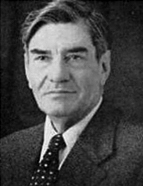

Armando Cortesão established a solid reputation as a historian of cartography, producing an extensive body of work that spanned not only historiography but also agronomy, colonial affairs, the history of science, culture, and international relations. He was a liberal opposition republican, a colonial administrator, a senior official at UNESCO and an accomplished Olympic athlete. Born on 31 January 1891 in São João do Campo, near Coimbra, Cortesão came from a middle-class family with a republican and liberal background. After completing his education in Coimbra, where he excelled in various sports, he represented Portugal in its first Olympic team at the 5th Olympic Games in Stockholm in 1912, competing in the demanding 800-metre race.
He earned a degree in Agricultural Engineering from the Instituto Superior de Agronomia [Higher Institute of Agronomy] in Lisbon, with a dissertation on trematology and plant improvement, where he already exhibited a strong sense of patriotism and a keen interest in history — two elements that would guide him throughout his life. Between 1914 and 1920, he participated in numerous projects across the Americas, the West Indies, Guinea, Senegal, and São Tomé, publishing several papers on these projects and building an impressive academic record. He also took part in the Geodesy Project in São Tomé and Príncipe, conducted by Gago Coutinho in 1917-18. Upon his return to Lisbon in 1920, Cortesão held various positions in the Portuguese colonial administration until his retirement in 1932. He was the Portuguese Delegate to the London Colonial Conference in 1921 and the Brussels Conference in 1924, and was Portugal's Commissioner-General at the Antwerp International Exposition in 1930.
